Incoterms (International Commercial Terms) are a set of predefined commercial terms published by the International Chamber of Commerce (ICC). These terms are widely used in international trade contracts to clearly define the responsibilities, risks, and costs associated with the transportation and delivery of goods between buyers and sellers.One of the most fundamental and commonly used Incoterms is EXW (Ex Works). Under EXW, the seller fulfills their obligation by making the goods available for pickup at their premises. All responsibilities from that point onward, including loading, transportation, customs clearance, and insurance, are transferred to the buyer.
What is EXW (Ex Works)?
EXW (Ex Works) means that the seller delivers when they place the goods at the disposal of the buyer at the seller’s premises or another named place (i.e., works, factory, warehouse, etc.), not cleared for export and not loaded on any collecting vehicle. Essentially, the seller’s responsibility ends when the goods are made available for pickup. The buyer bears all costs and risks involved in taking the goods from the seller’s premises to the desired destination.
EXW has been a part of the Incoterms framework since its inception. Initially designed to simplify the terms of trade, EXW has evolved to address the complexities of modern global trade. With the latest update in Incoterms 2020, EXW remains an essential term, particularly for transactions where the buyer has extensive control over the logistics process.
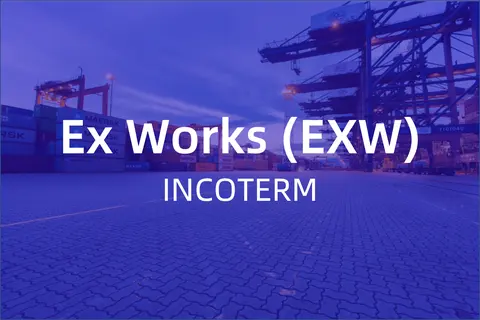
Key Responsibilities Under EXW
Responsibilities of the Seller
- Preparation of Goods: The seller is responsible for ensuring that the goods are ready and available for pickup at the agreed location and time. This includes necessary documentation that identifies the goods.
- Packing and Labeling: The seller must properly pack and label the goods in compliance with the contract terms and any applicable regulations to ensure safe transportation.
Responsibilities of the Buyer
- Loading, Transportation, and Delivery: The buyer is responsible for all activities and costs involved in loading the goods onto the transport vehicle, as well as the subsequent transportation and delivery to the final destination.
- Export and Import Customs Clearance: The buyer must handle all export and import customs clearance procedures and bear any associated costs or duties. This includes obtaining necessary licenses and paying any applicable taxes.
- Insurance Arrangements: The buyer must arrange for any insurance coverage desired, as the seller has no obligation to provide insurance under EXW terms.
The following table outlines the key responsibilities under EXW (Ex Works) for both the seller and the buyer:
| Responsibility | Seller’s Responsibility | Buyer’s Responsibility |
|---|---|---|
| Preparation of Goods | Yes | No |
| Packing and Labeling | Yes | No |
| Loading onto Transport | No | Yes |
| Transportation Costs | No | Yes |
| Export Customs Clearance | No | Yes |
| Import Customs Clearance | No | Yes |
| Import Duties and Taxes | No | Yes |
| Insurance Arrangements | No | Yes |
| Risk During Transport | No | Yes |
Advantages of Using EXW
Benefits for Sellers
- Minimal Responsibility: Sellers benefit from having minimal responsibility and risk once the goods are made available for pickup. This reduces their involvement in the complex logistics and customs processes.
- Cost Savings: By not having to arrange transportation, customs clearance, or insurance, sellers can save on these operational costs.
Benefits for Buyers
- Cost Control: Buyers can negotiate better rates for transportation, customs clearance, and insurance, potentially leading to cost savings.
- Flexibility and Control: Buyers have complete control over the logistics process, allowing them to choose preferred service providers and routes.
Disadvantages and Risks of EXW
Potential Risks for Sellers
- Limited Control: Once the goods are made available for pickup, sellers have no control over the transportation process. Any mishandling or delays by the buyer or their agents can still reflect poorly on the seller.
- Documentation Issues: If the buyer fails to handle export documentation properly, it could lead to complications that may indirectly affect the seller.
Potential Risks for Buyers
- Increased Responsibility: Buyers take on significant responsibility, including all transportation and customs clearance activities, which can be complex and time-consuming.
- Higher Costs: Without careful planning, buyers may incur higher costs for transportation, insurance, and customs duties.
Comparing EXW with Other Incoterms
Table Comparing EXW with FOB, CIF, and DDP
To provide a clearer understanding of how EXW (Ex Works) compares with other commonly used Incoterms, the following table outlines the key responsibilities and cost allocations for EXW, FOB (Free on Board), CIF (Cost, Insurance, and Freight), and DDP (Delivered Duty Paid):
| Aspect | EXW (Ex Works) | FOB (Free on Board) | CIF (Cost, Insurance, and Freight) | DDP (Delivered Duty Paid) |
|---|---|---|---|---|
| Cost Responsibility | Buyer | Split | Split | Seller |
| Insurance | Buyer | Buyer | Seller (until port of destination) | Seller |
| Customs Clearance | Buyer (Both) | Seller (Export) | Seller (Export) | Seller (Both) |
When to Choose EXW Over Other Incoterms
Choosing the appropriate Incoterm depends on several factors, including the level of control you want over the logistics process, your familiarity with export and import regulations, and the nature of your business relationships. EXW is particularly advantageous when:
- The buyer has robust logistics capabilities: If the buyer is well-equipped to handle the complexities of international shipping, EXW provides them with maximum flexibility and control.
- Local transactions: For transactions that are local or where the buyer can easily arrange for pickup, EXW minimizes complications and costs for the seller.
- Cost-saving opportunities: Buyers who can negotiate better rates for transportation and insurance may find EXW more cost-effective.
Read More:
- Shipping From China to the United States
- Shipping From China TO CANADA
- Shipping From China To Netherlands
- Shipping From China To UNITED KINGDOM
- Shipping From China To ALGERIA
- Shipping from China to UAE
- Shipping from China to Saudi Arabia
Best Practices and Tips for Using EXW in 2025
- Understand Responsibilities Clearly:
- Seller’s Role: Ensure goods are available at the agreed location, properly packed, and provide necessary commercial documents like invoices and packing lists.
- Buyer’s Role: Arrange pickup, transportation, export customs clearance, and handle all associated costs and risks.
- Use Digital Documentation:
- Leverage electronic formats for customs clearance and trade compliance to streamline processes and reduce paperwork.
- Risk Management:
- Although insurance is optional, it is highly recommended for buyers to cover against damage, theft, or loss during transit.
- Compliance with Local Regulations:
- Ensure compliance with export and import regulations, as some countries may require the seller to assist with export formalities.
- Collaborate with Freight Forwarders:
- Partner with experienced freight forwarders to manage logistics efficiently, negotiate better rates, and consolidate shipments for cost savings.
- Plan Transportation Strategically:
- Choose the most cost-effective and time-efficient shipping method (sea, air, or rail) based on the nature of the goods and urgency.
- Maintain Clear Communication:
- Ensure that the Incoterm is clearly specified in the contract to avoid misunderstandings and disputes.
Tips for Buyers
- Consolidate Shipments: If purchasing from multiple suppliers, consider consolidating goods into a single shipment to reduce costs.
- Optimize Freight Costs: Compare quotes from multiple carriers and avoid peak seasons to secure competitive rates.
- Ensure Proper Insurance Coverage: Comprehensive insurance can protect against unforeseen risks during transit.
Tips for Sellers
- Minimize Involvement: EXW allows sellers to focus on manufacturing without dealing with international logistics complexities.
- Provide Necessary Assistance: Be prepared to assist with export formalities if required by local regulations.
By following these best practices and tips, both buyers and sellers can efficiently manage EXW shipments while minimizing risks and costs.
How Dantful International Logistics Can Help
Dantful International Logistics offers a full suite of services designed to simplify and optimize your international shipping needs. Our services include:
- Freight Forwarding: Comprehensive solutions for air, ocean, and land transportation.
- Customs Clearance: Expert handling of export and import customs procedures to ensure compliance and efficiency.
- Warehouse Services: Secure storage options and inventory management tailored to your needs.
- Insurance Services: Customized insurance solutions to protect your goods during transit.
Our experienced team of logistics professionals is dedicated to providing cost-effective, high-quality services that meet the unique needs of global traders. Contact us today to learn how we can support your business and streamline your EXW shipments.
Dantful International Logistics Services:
- Dantful Ocean Freight Services
- Air Freight From China
- Amazon FBA Freight Forwarding
- WAREHOUSE Services
- One-Stop Customs Clearance Solution
- Cargo Insurance Services in China
- DDP Shipping Services By Dantful Logistics
- Out of Gauge Cargo Transportation Shipping Services
References
- International Chamber of Commerce (ICC). “Incoterms® 2020.” Available at: ICC Incoterms® 2020.
- Freightos. “Understanding Incoterms: A Complete Guide.” Available at: Freightos Guide to Incoterms.
- International Trade Administration. “Guide to Exporting: Incoterms® 2020.” Available at: Export.gov Incoterms Guide.

Young Chiu is a seasoned logistics expert with over 15 years of experience in international freight forwarding and supply chain management. As CEO of Dantful International Logistics, Young is dedicated to providing valuable insights and practical advice to businesses navigating the complexities of global shipping.




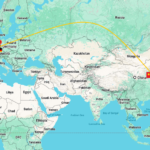





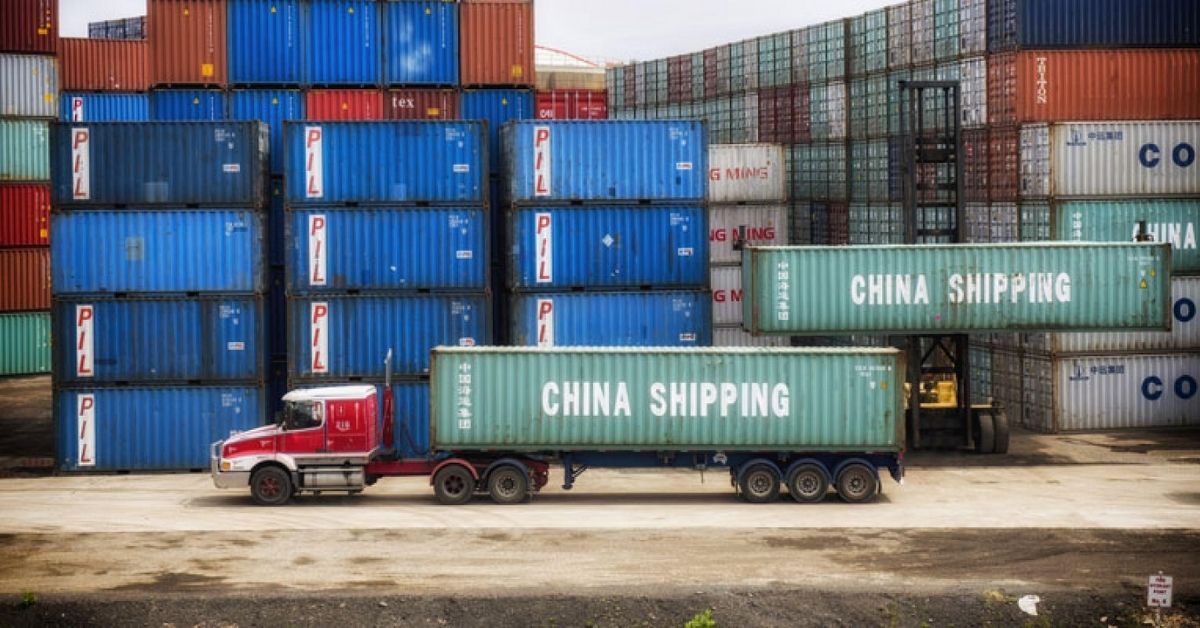
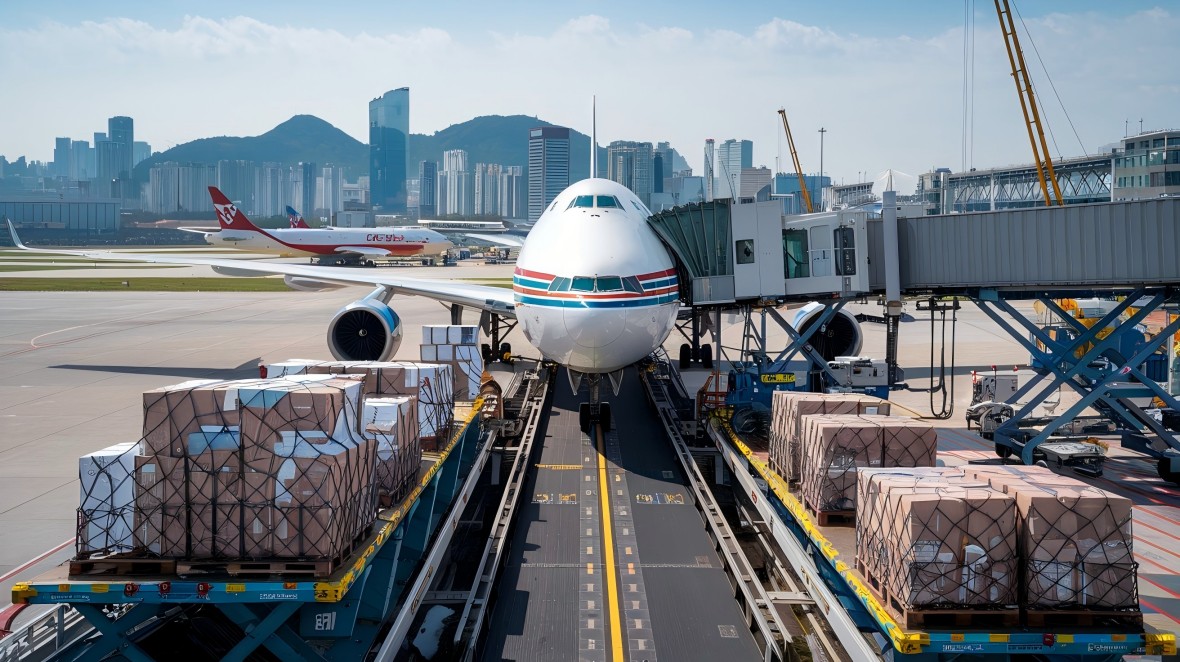
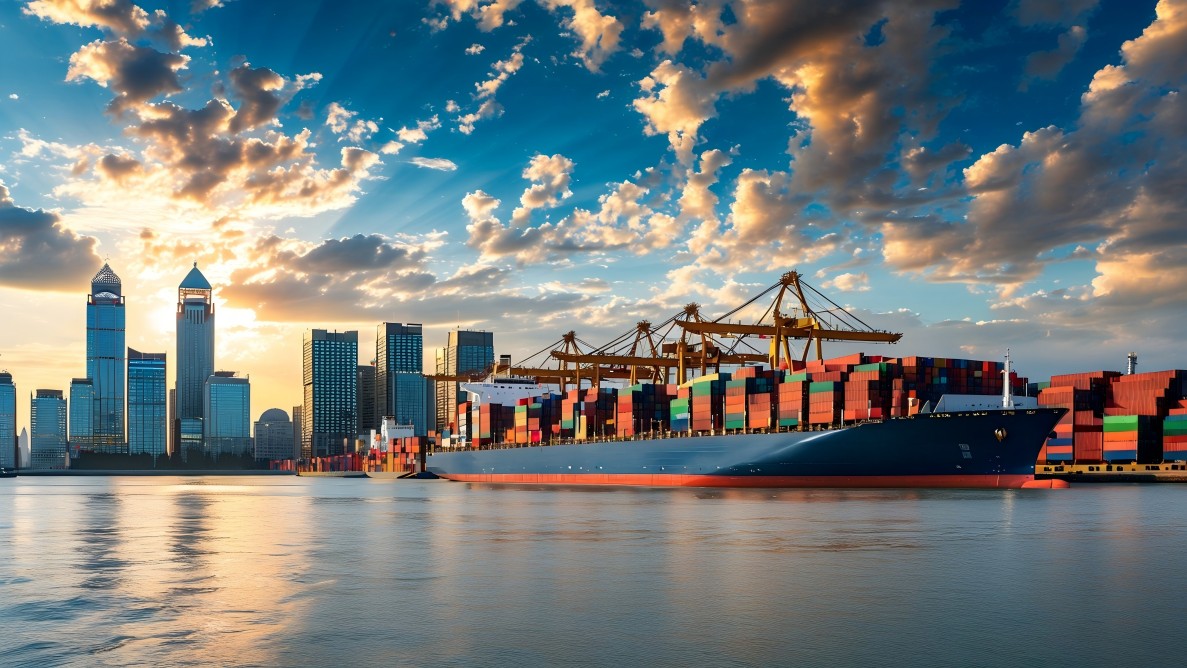
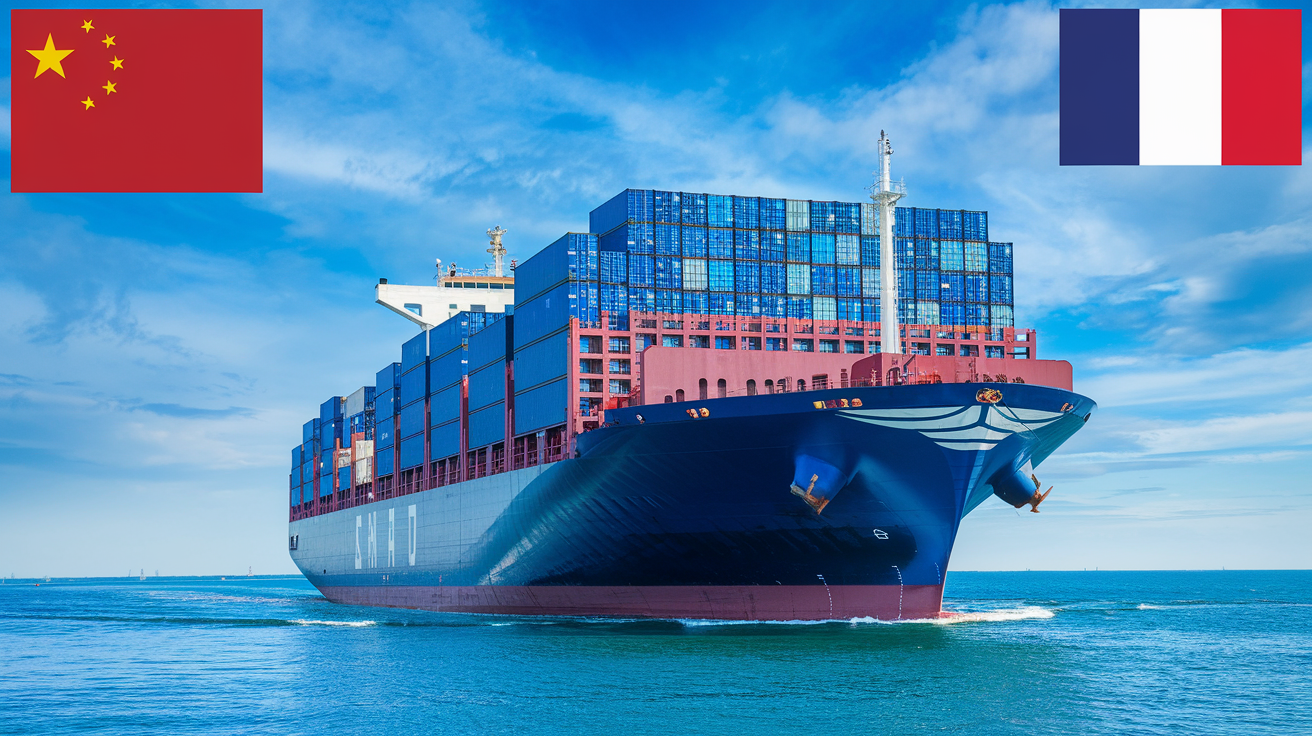






 Afrikaans
Afrikaans Shqip
Shqip አማርኛ
አማርኛ العربية
العربية Հայերեն
Հայերեն Azərbaycan dili
Azərbaycan dili Euskara
Euskara Беларуская мова
Беларуская мова বাংলা
বাংলা Bosanski
Bosanski Български
Български Català
Català Cebuano
Cebuano Chichewa
Chichewa 简体中文
简体中文 繁體中文
繁體中文 Corsu
Corsu Hrvatski
Hrvatski Čeština
Čeština Dansk
Dansk Nederlands
Nederlands English
English Esperanto
Esperanto Eesti
Eesti Filipino
Filipino Suomi
Suomi Français
Français Galego
Galego ქართული
ქართული Deutsch
Deutsch Ελληνικά
Ελληνικά Kreyol ayisyen
Kreyol ayisyen Harshen Hausa
Harshen Hausa Ōlelo Hawaiʻi
Ōlelo Hawaiʻi עִבְרִית
עִבְרִית हिन्दी
हिन्दी Hmong
Hmong Magyar
Magyar Íslenska
Íslenska Igbo
Igbo Bahasa Indonesia
Bahasa Indonesia Gaeilge
Gaeilge Italiano
Italiano 日本語
日本語 Basa Jawa
Basa Jawa ಕನ್ನಡ
ಕನ್ನಡ Қазақ тілі
Қазақ тілі ភាសាខ្មែរ
ភាសាខ្មែរ 한국어
한국어 كوردی
كوردی Кыргызча
Кыргызча ພາສາລາວ
ພາສາລາວ Latin
Latin Latviešu valoda
Latviešu valoda Lietuvių kalba
Lietuvių kalba Lëtzebuergesch
Lëtzebuergesch Македонски јазик
Македонски јазик Malagasy
Malagasy Bahasa Melayu
Bahasa Melayu മലയാളം
മലയാളം Maltese
Maltese Te Reo Māori
Te Reo Māori मराठी
मराठी Монгол
Монгол ဗမာစာ
ဗမာစာ नेपाली
नेपाली Norsk bokmål
Norsk bokmål پښتو
پښتو فارسی
فارسی Polski
Polski Português
Português ਪੰਜਾਬੀ
ਪੰਜਾਬੀ Română
Română Русский
Русский Samoan
Samoan Gàidhlig
Gàidhlig Српски језик
Српски језик Sesotho
Sesotho Shona
Shona سنڌي
سنڌي සිංහල
සිංහල Slovenčina
Slovenčina Slovenščina
Slovenščina Afsoomaali
Afsoomaali Español
Español Basa Sunda
Basa Sunda Kiswahili
Kiswahili Svenska
Svenska Тоҷикӣ
Тоҷикӣ தமிழ்
தமிழ் తెలుగు
తెలుగు ไทย
ไทย Türkçe
Türkçe Українська
Українська اردو
اردو O‘zbekcha
O‘zbekcha Tiếng Việt
Tiếng Việt Cymraeg
Cymraeg יידיש
יידיש Yorùbá
Yorùbá Zulu
Zulu